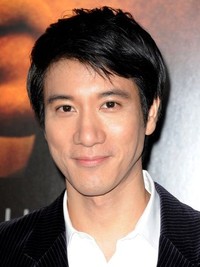Leehom Wang

Arguably one of the biggest entertainment stars in Asia, Leehom Wang enjoyed extraordinary success as a pop singer with a diverse palette of musical interest and as a leading man in Chinese films like "Lust, Caution" (2007) and "Love in Disguise" (2010), which he also directed. Born Alexander Leehom Wang on May 17, 1976 in Rochester, New York, he was the second of three sons born to Chinese immigrants who had relocated to the United States in the early 1960s for college studies. He developed an interest in violin at an early age, inspired in part by his brother's skill with the instrument; from the age of six until his teenaged years, Wang studied violin and piano while also teaching himself to play guitar and drums. After completing grade and high school, Wang pursued a double major in music and Asian studies at Williams College. In 1995, while visiting his grandparents in Taiwan, Wang participated in a talent contest sponsored by the BMG music publishing company. He was offered a recording contract and released his first album, Love Rival, Beethoven that same year. The record was largely ignored, though a follow-up for Decca Records, titled If You Heard My Song (1996), performed moderately well, thanks to the label's advertising campaign, which pitched Wang as a "quality idol." He left Decca in 1998 for Sony Music Entertainment, which released his first true breakout album, Revolution. The album generated his first No. 1 single with the title track and formally minted Wang as a major Asian pop star. Despite his newfound status, Wang continued his studies in America at Berklee College of Music's Professional Music program. He returned to his music career in 1999 for the dance-pop oriented Impossible to Miss, which sold more than 1 million copies. By the new millennium, Wang had fully embraced the pop idol career path: he made his screen acting debut in 2000's "China Strike Force" for director Stanley Tong, and subsequently enjoyed a string of Hong Kong action hits. He continued to generate top-selling albums throughout the 2000s, even when flirting with a variety of genres, from hip-hop on Unbelievable (2003), Tibetan and Mongolian music on Shangri-La (2004) and Beijing opera on Heroes of Earth (2006). His acting career also flourished, with a starring role in the acclaimed espionage drama "Lust, Caution" (2007) for director Ang Lee. By the following year, Wang had added touches of Broadway to his musical palette and even social commentary to his song lyrics; each album brought him to the top of the Asian pop charts. In 2010, he added director to his ever-expanding resume by helming and starring in the romantic comedy "Love in Disguise," which became the highest-grossing movie from a first-time director in Chinese film history. Three years later, Wang's English-language film debut was announced when he was cast as the title role in a live-action adaptation of Stan Lee's "Annihilator" comic book series; however, the film, a joint American-Chinese production, remained in pre-production for several years, and Wang eventually made his first American film appearance as a military officer in Michael Mann's cybercrime thriller "Blackhat" (2015), co-starring Chris Hemsworth. Though the film was a box-office disaster in the west, Wang's presence helped to turn a profit in Asian-language territories.